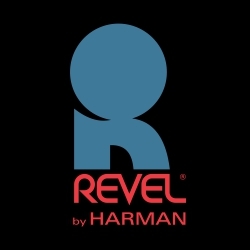America has Rhino Records, undeniably one of the great reissue labels. But, hey, there’s no-one quite so anal as a European record collector, so you can assume rightly that the most thorough archive-dredgers in the world are based on the far side of the Pond. Not even the Japanese reissue masters, whose skill for lavish packaging knows no bounds, are on a par with labels in the UK and Germany. Their passion borders on the, well, sad. Indeed, there’s a doctoral thesis for some rockin’ psychology student in there.
Think about it: the USA is responsible for most of the world’s great rock music, yet it only boasts, in addition to Rhino, a few archive labels like Ryko, One-Way, Sundazed, Razor & Tie and, er, that’s it. The UK on its own can claim Edsel, Ace, Charly, RPM, BGO, Sequel, Rollercoaster, See For Miles, Dojo, C5, Music Club, Castle Communications, Great Expectations, ASV and Carlton, with Ace itself having subdivisions like Chiswick (early punk), Big Beat (US West Coast, psychedelic and weird), Stax (the staff Warner doesn’t handle), and a few others. And that’s not counting jazz labels, Euro-only reissues instigated by the UK offices of the major labels, nor the ones I’ve forgotten…
Because Europeans have a slavish, irrational respect for also-ran American artists which the Americans can’t bring themselves to reissue (e.g. the Lemon Pipers), we find the UK and Germany in particular producing some stuff which Yankee bean-counters just wouldn’t let past the planning stage. And Euro-nuts will listen feverishly to musical scraps you just wouldn’t have expected to survive. Here’s an example on how the American vs European approaches differ, without embarrassing either company involved:
When it came time to do a box set covering a certain Golden Age rock legend, the artist’s American label came up with a perfectly balanced four-CD set with no fat. The British version? Eight CDs, including every cough, fart, sneeze and hiccup. When we compared the sets, I was asked by Colin Escott, the Grammy-nominated genius behind the Hank Williams singles box set and one who is not in sympathy with my collector fetishism, “But which would you actually listen to more than once?”
He has a point and I couldn’t defend the extra three or so hours’ worth of drivel. But as any Goldmine-reading magpie will tell you, everything deserves to be released in some form or another. For posterity, right? Like all the outtakes of “Strawberry Fields” and every false start or interruption which ever occured in a studio? But would anyone actually buy a CD of Partridge Family B-sides and demos?
Still, it’s not all navel-contemplating. Amidst the lunatic efforts are wholly admirable reissue programs like Sequel’s plan to release all of Dionne Warwicke’s Scepter albums as 2-on-1 CDs, and others which deserve your attention. This column will alert you to treasures which might never enjoy US release. Our advertizing sections should steer you toward record stores with the willingness to stock and/or obtain imports, should your local emporia not be so inclined.
As this is the season for staying inside and for giving lavish gifts, it’s no surprise that a cluster of interesting box sets has arrived. EMI has honored that great British R&B outfit, Dr. Feelgood, with a four-CD-plus-bonus-disc set called LOOKING BACK (EMI 7234 8 34414 2 6). Dr Feelgood, in case you thought that the only British rock worth hearing in the mid-1970s had “punk” appended to it, was the hardest-working band in the land, not unlike a UK edition of the Fabulous Thunderbirds…right down to a harp-blowing frontman. Alas, the frontman in the Feelgoods’ was Lee Brilleaux, who died of cancer in 1994 at the shockingly young age of 41. This box, containing 104 tracks, many of which are previously unreleased, is a fitting memorial to one of the few groups who really didn’t give a hoot about torn clothes and safety pins through the nose when such items were de riguer. Hard driving, blues-based rock at its best.
Another lavish package, also commemorating a British R&B band, is one with which I must proclaim a conflict of interest: I wrote some of the liner notes, the discography and the track-by-track interview. But don’t let that stop you from enjoying the 6x12in “library pack”, 2-CD set, the Pretty Things’ UNREPENTANT (Fragile 5 016556 200523). It’s the first chapter of the band’s “restoration program”, now that this seminal Sixties hard-rock outfit has regained control over its entire catalogue. It was transfered from the finest sources to hand, the project overseen by the band’s Number One fan, producer and anti-digital tube-fanatic Mark St John. (Hard-core audiophiles will recognize the name from the first release on B&W’s “world music” label.) Preceding the eventual re-releasing of all of the band’s original LPs and a possible killer box set, this relaunch package contains 43 tracks representing every period in the group’s colourful history, including the Emotions album which the band hated. From covering Bo Diddley to inventing the concept LP, the Pretties did it all, and this well-balanced history is the best overview yet. Every track is annotated for date, source and so on, the sound is as good as it gets, and you’ll quickly understand why these guys were once considered the only rivals to the Rolling Stones. Move quickly, as this set is limited to around 10,000 copies world-wide.
To show you how the Germans overdo it, take a look at a typical Bear Family release: the eight-CD Louis Prima/Keely Smith/Sam Butera set, THE CAPITOL RECORDINGS (Bear Family BCD 15 776 HI). What can you say about a collection that starts with “Just A Gigolo” and then gets even better? It’s musically faultless, a complete vindication of the career of one known to too many only as King Louie from The Jungle Book. It’s all here, live work and studio, annotated to perfection with a 12x12in booklet to die for, so to speak. This is the kind of box set which even the nastiest reviewer cannot criticize, so authoritative are the session notes, so perfect the sound. By the time this material hits the stereo era, you’re transported. You can almost smell Las Vegas. If only Bear Family — not afraid of obscure acts — would do the same for Mickey Katz…
On the single-disc front, there’s plenty, too, so don’t think that all imports are designed to melt your Amex. Edsel, doyen of Sixties/West Coast music reissue labels, has repackaged the late Gene Clark’s rare Firebyrd album of 1984 as THIS BYRD HAS FLOWN (Edsel EDCD436), with with extra material. This ex-Byrd remains the most underrated member of that illustrious band, but history will show him to have been a country-rock giant easily as talented as his colleagues. This late-period solo work is simply gorgeous, and, thanks to Edsel, now no longer hard to find.
My nomination for the greatest rock saxophonist of all time is King Curtis. Two of his instrumental solo LPs have been paired on OLD GOLD/DOING THE DIXIE TWIST (Ace CDCHD 614), reminding all and sundry that this guy could play with the best of ’em. Skip to track 9, Curtis’ version of “Harlem Nocturne”, and fool your favorite music snob into thinking that it’s someone more politically correct (in jazz terms). This set is delicious, from start to finish. Even the “twist” tracks.
Because CD prices are so high in Europe — new full-price releases cost between $20 and $30 depending on where you’re unfortunate enough to be shopping — that an exceptionally tough budget-label industry has emerged. Mainly licensing from other reissue labels as well as the majors, they compete solely on price. One label, though, has managed to add slick packaging (like clear inner trays) and proper, authoritatively written liner notes, something usually missing completely from budget CDs. Music Club’s latest treasure is probably the finest single-disc collection yet for impoverished fans of the Four Seasons. THE VERY BEST OF THE FOUR SEASONS (Music Club MCCD 211) contains18 smash hits, the transfers are excellent (licensed from Warner Special Products), the booklet runs to eight pages, and the only real hit that’s missing is a song they did under an alias. They’re all here: “Rag Doll”, “Sherry”, “Walk Like A Man” and more, on up to the later hits like “December ’63 (Oh What A Night)” and “Silver Star”. But the kicker is the price tag: £5.99 ($9) including the UK’s criminal 17.5% tax.
Whether or not it’s time for a Don McLean revival I don’t know, but one British label has been reissuing his entire back catalogue with original artwork and extensive, newly-written liner notes. The latest is the 1973 release PLAYIN’ FAVORITES (BGO BGOCD21), with McLean covering others’ material. His innate good taste means material from Buddy Holly, Jimmie Rodgers, and other rock, blues and country giants, and he does a wonderful cover of the immortal “Lovesick Blues”. (If that’s one of your favorite crying-in-your-beer tunes, try to find the Crickets’ cover version from the same year…)
Bubbling beneath soul greats like Otis, James and Marvin are dozens of equally worthy if less successful wonders like Garnett Mimms. Even if his name hardly rings a bell, you’ve heard his material covered at one time or another. BGO has twinned two of his albums to create CRY BABY/WARM AND SOULFUL (BGOCD268), a marvellous testimonial for a singer not that far shy from the greatness of Howard Tate. And like Tate, he was a Jerry Ragovoy protege, so the song listing includes plenty of Ragovoy compositions. Mimms’ version of “Cry Baby” worked wonders for Janis, his “Cry To Me” is a lost soul gem and you’ll never tire of another take of Brook Benton’s “It’s Just A Matter of Time”.
Just so you don’t think that it’s all good taste and sheer hipness in Europe, it should be pointed out that certain reissue label bosses have seriously worrying fetishes. In the case of Colin Miles, main man at See For Miles, it’s a passion for crappy rock instrumentals. See For Miles has reissued brilliant material from Rick Nelson to B.B. King to the Kinks, yet Colin insists in re-releasing dreck from the worst guitar twangers imagineable. Being British, he has a natural predilection for brainless UK acts of which you’ve mercifully never heard because American labels were too smart ever to release their noise in the USA. But Colin is an internationalist, and he’s doing his best to restore the entire Ventures catalogue to the racks.
Yes, that same group of Mosrite-wielding cover merchants who could turn any rock classic into elevator music. The latest two-on-one CD from See For Miles’ subsidiary label C5 is WALK DON’T RUN VOL 2/KNOCK ME OUT (C5HCD 630). Admittedly, it’s classic/early rather than lame/later Ventures, but it still consists of superbly recorded, twangy instrumentals of semi-dubious worth. Out at the same time and consistent with Colin’s fear of vocals is Sandy Nelson’s KING OF THE DRUMS — HIS GREATEST HITS (See For Miles SEECD 423), in so far as a drummer can have hits, that is. Again, the sound will astonish you, but it actually makes wanting to hear Ginger Baker doing “Toad” for the 90th time seem a sane desire. And that’s scary. Anyway, it’s 24 thumpin’ treasures from the man who declared, “Let there be drums!” But we should not be too harsh: Ace Records, adjudged by many to be THE class-act among the reissue labels, has just released a Sandy Nelson CD, too.
More typical of Ace is a dynamite various artists set, one of the company’s superb record label histories. THE CADENCE STORY (Ace CDCHD 550) charts the saga of the label which boasted a young Andy Williams. Rumor has it that Williams bought the label just to keep his early tracks off the market; after you’ve heard this CD, you’ll understand why. Alongside his early dross, though, are classics like the Everly Brothers’ “All I Have To Do Is Dream”, “Bye Bye Love” and “Wake Up Little Susie”, Johnny Tillotson’s “Poetry In Motion” and “It Keeps Right On A Hurtin'”, the Chordettes’ “Lollipop” and “Mr. Sandman”, Bill Hayes’ hit version of “The Ballad of Davy Crockett”, Link Wray’s “Rumble” and another 19 chart entries from the 1950s and early 1960s. Not bad for a small indie label, huh? But be warned: this CD also contains a nominee for the worst record of all time: Julius La Rosa’s “Eh, Cumpari!”.
On the other hand, if you love kitsch, it’s almost reason enough to buy the CD.
(Fi Magazine, Issue 1-1996)






















